Navigating the world of K-12 education can feel like trying to find a needle in a haystack—if that needle were a perfect school for your child and the haystack was filled with endless paperwork and confusing jargon. Parents and students alike often find themselves overwhelmed by choices, curricula, and the latest educational trends. But fear not! This guide is here to illuminate the path through the labyrinth of K-12 education information.
K12 Education Information
K12 education encompasses the educational experience from kindergarten through 12th grade. This system prepares students for higher education and the workforce, focusing on essential academic subjects and social skills.
Definition of K12 Education
K12 education involves a structured learning framework designed for children aged 5 to 18. It covers grades K through 12, providing diverse options such as public, private, and charter schools. The curriculum includes core subjects like mathematics, science, and language arts, emphasizing critical thinking and creativity. It serves as a foundational stage for lifelong learning, molding students into responsible and informed citizens.
Importance of K12 Education Information
Accurate K12 education information guides families in making informed decisions. Understanding school options and curricula enhances the ability to select the best fit for each child’s needs. Timely data on educational trends and policies helps parents advocate for their children’s education effectively. Additionally, knowledge of available resources can enhance a student’s academic performance. Prioritizing up-to-date information fosters a supportive learning environment at home and within the community.
Key Components of K12 Education

K-12 education consists of several crucial components that impact student learning and development. Understanding these key elements helps families navigate educational choices effectively.
Curriculum Standards
Curriculum standards establish the foundational guidelines for what students learn in each grade. These benchmarks ensure consistency across educational institutions. States implement different standards, focusing on core subjects like mathematics, science, and language arts. Many states adopt the Common Core State Standards to promote critical thinking skills and problem-solving abilities. Schools also create unique curricula that address local needs and promote diverse perspectives. Emphasizing academic rigor, engagement, and relevance helps educators prepare students for future challenges.
Assessment Methods
Assessment methods play a vital role in evaluating student progress and understanding. Standardized tests offer a uniform approach to measuring academic achievement; however, they represent just one aspect of assessment. Formative assessments, such as quizzes and classwork, provide ongoing feedback throughout the learning process. Teachers use these insights to tailor instruction and support individual student needs. Performance-based assessments, including projects and presentations, also allow students to demonstrate their understanding in practical ways. Consistently utilizing varied assessment methods ensures a comprehensive understanding of student outcomes and informs instructional practices.
Benefits of K12 Education Information
K-12 education information provides numerous advantages for students and families. Key benefits include improved learning outcomes and enhanced parental involvement.
Improved Learning Outcomes
Accessing accurate K-12 education information promotes improved learning outcomes. This data allows families to identify effective curricula aligned with their children’s learning styles. By understanding curriculum standards, families can focus on essential skills and knowledge areas. Knowledge of assessment methods helps in tracking student progress, enabling the allocation of additional resources when needed. Regular updates on educational trends ensure that families adopt the most effective teaching strategies. Ultimately, informed decisions lead to higher academic performance in students.
Enhanced Parental Involvement
Enhanced parental involvement stems from readily available K-12 education information. Parents who stay informed about educational policies can advocate effectively for their children’s needs. Understanding key components of K-12 education fosters a collaborative approach between teachers and families. Engaged parents participate actively in school activities and support learning at home. They can communicate better with educators, leading to a more enriching educational experience. By prioritizing recent and relevant information, families create a supportive learning environment that nurtures student growth.
Challenges in K12 Education Information
Navigating K-12 education information presents several challenges that families encounter regularly. These hurdles can impact decision-making and overall educational experiences.
Accessing Quality Information
Finding reliable K-12 education information often proves difficult. Many parents struggle with misinformation or outdated resources. Various sources exist, but not all provide accurate insights. School district websites, state education departments, and reputable educational organizations serve as valuable options. However, verifying the credibility of these sources remains crucial for families. Additionally, local community resources might offer specific guidance tailored to unique needs, but awareness of such programs is often limited. Prioritizing access to quality information enhances a family’s ability to make informed decisions regarding their child’s education.
Keeping Up with Changes
Adapting to the fast-paced evolution of K-12 education can overwhelm parents and students alike. Changes in curricula, testing standards, and educational policies occur frequently. Staying informed requires regular engagement with educational news and updates. Attending school board meetings and participating in parent-teacher associations can provide real-time insight. Using social media platforms for discussions and updates serves as another way to keep track of developments. Prioritizing ongoing education about these changes enables families to effectively advocate for their children and make well-informed decisions.
Navigating the K-12 education landscape can be daunting but having the right information makes all the difference. Families equipped with accurate and timely data can confidently make decisions that align with their children’s needs and aspirations. Staying informed about educational trends and resources empowers parents to advocate for their children effectively.
By understanding the key components of K-12 education, families can enhance their involvement and support their children’s academic journey. The commitment to accessing reliable information fosters a nurturing environment that promotes student growth and achievement. Embracing this knowledge ensures that families are not just participants but active contributors to their children’s educational success.

